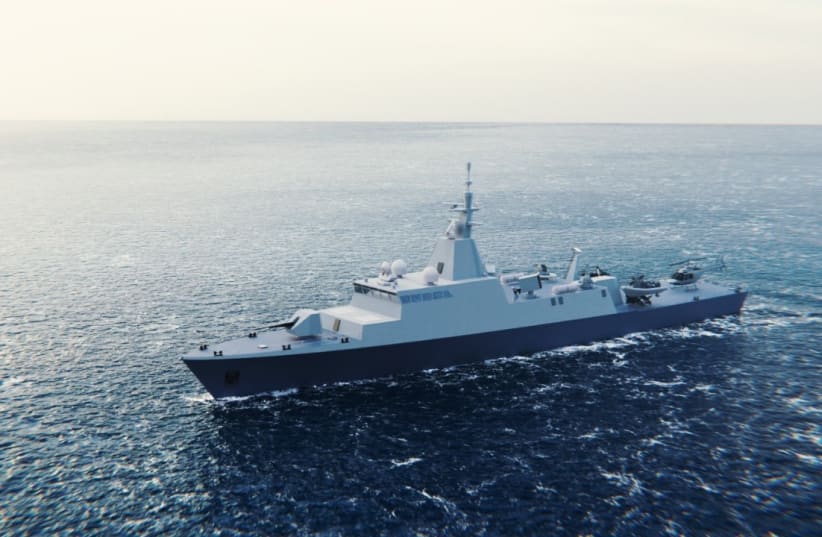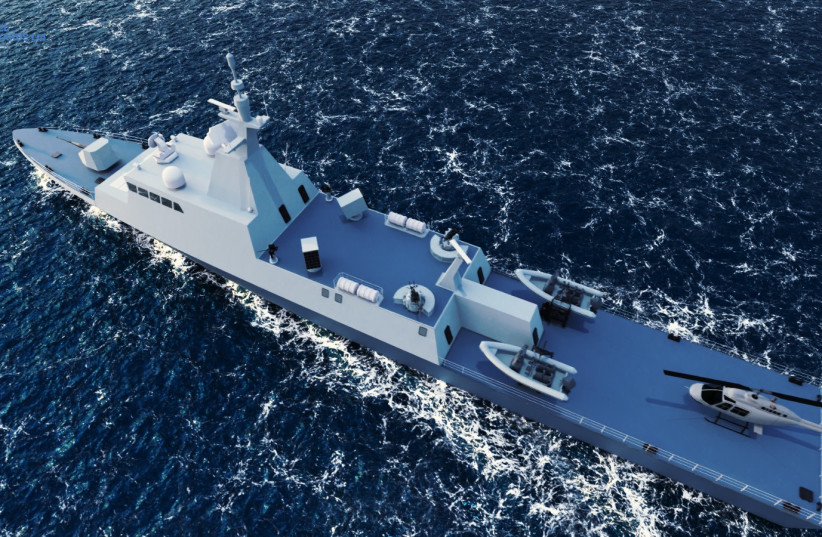Israel Shipyards unveiled its new generation SAAR S-80 Corvette class with increased weapon suite capacity and a longer range designed to withstand future threats.
Based on the S-72 platform, the S-80 Corvette features greater versatility and a higher payload capacity with increased weapon suite capacity and a wider spread of Electronic Warfare (EW) systems as part of the platform's offensive advantages.
The vessel is 80 meters in length and is powered by four diesel engines for a top speed of more than 28 knots. The S-80 will be equipped with a state-of-the-art control system, a health management system and advanced surface-to-air capabilities, as well as various combat systems according to the requirements of the customer.
By minimizing radar cross section (RCS), the S-80 allocates larger deck space for additional weapons systems.
According to the company, the vessel “can be adjusted to accommodate Corvette or as an OPV [Offshore Patrol Vessels] version, depending on the operational requirements.”
The S-80 allows for a longer range of 3,500 nautical miles and endurance for extended periods with reduced detection risks, making it ideal for diverse applications and missions. The vessel can also support the possibility of deploying Special Forces units.
Israel Shipyards intends to make the new S-80 its flagship vessel for the next decade, serving the needs of the Israeli and foreign navies.
“The ship is designed for stealth, agility and ruling the seas with cutting-edge capabilities required in future combat scenarios,” according to CEO Eitan Zucker. “The S-80 ship will enable navies to effectively protect their country's sovereignty, maintain their economic waters, and win naval battles in times of war. [It] has the endurance to operate in the open sea, and also to control the littoral [nearshore zone] – all this with an optimal cost-benefit ratio.”
Israel’s Navy is made up of routine patrol units, submarines (Shayetet/Flotilla 7), naval special forces (Shayetet 13) and missile boats (Shayetet 3). It recently received four new Sa’ar 6 missile ships, giving it a total of 15 missile ships.
Though the navy is relatively small compared to other IDF corps, it has to protect Israel’s largest strategic depth under or over the surface of some 44,000 sq. km. of sea, almost double the size of the country.
It also has to guard strategic infrastructure such as the natural gas rigs; protect the commercial shipping lanes which bring in 98% of Israel’s imports; and take part in missions far from the country’s borders.
Due to the country’s high dependency on the sea, the navy has begun to upgrade its entire combat fleet with the Sa’ar-6 Corvettes and new Dolphin-class submarines. The existing Sa’ar-5 and Sa’ar-4.5 ships have also been upgraded with the integration of new radars and electronic warfare systems.

